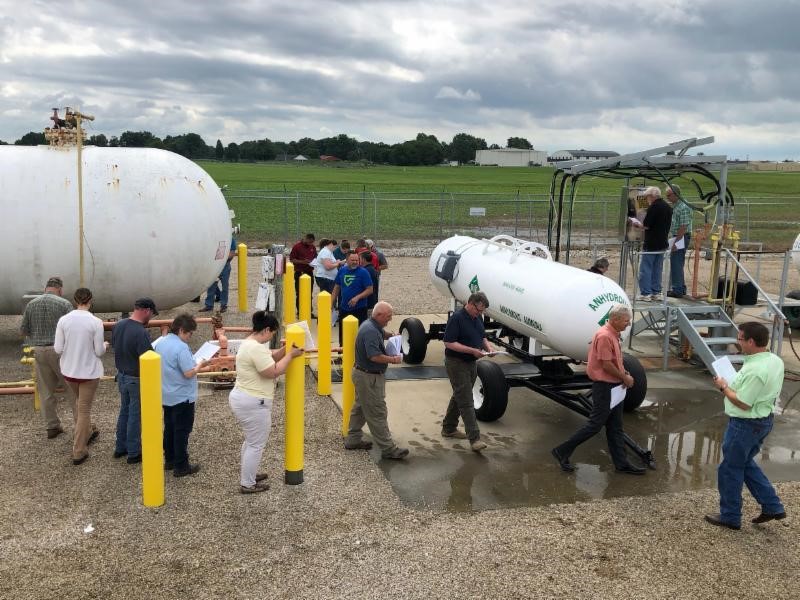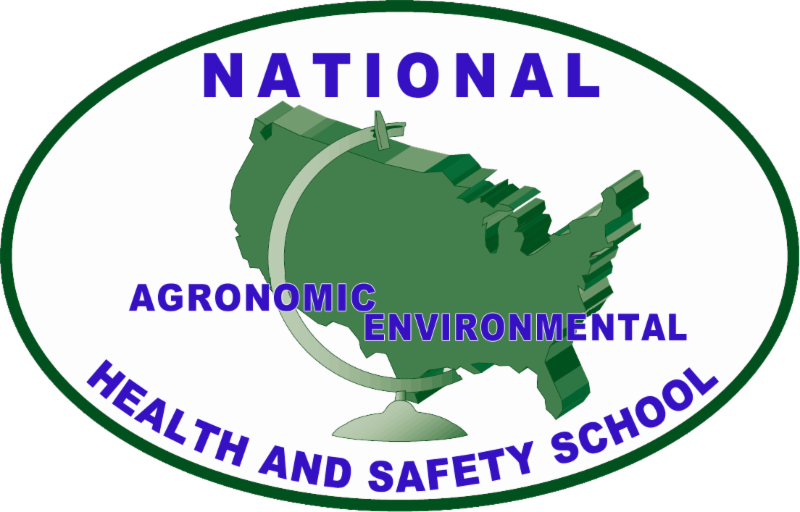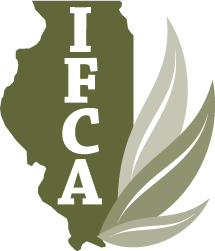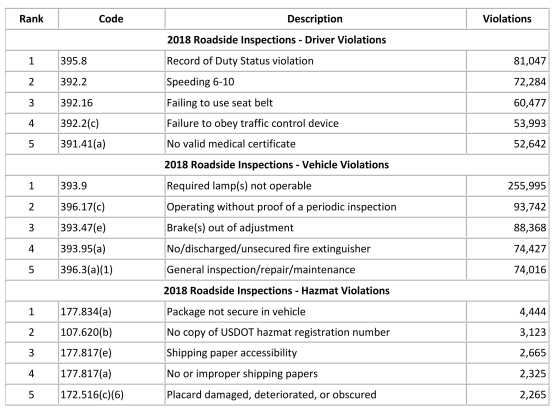Newsletter
Volume 28 Jul 10, 2019
Attendees from Coast to Coast Participate in June Auditor Training Class

It was a full class for the ResponsibleAg Auditor Training Course held in late June in Owensboro, KY. The four-day, hands-on class was at the Ford B. West Center, the former agrichemical facility retrofitted specifically for training. The course provides great learning opportunities and experiences with the goal of ensuring ResponsibleAg Credentialed Auditors conduct accurate and credible audits for the ResponsibleAg Certification Program. Each auditor must successfully complete this course, as well as an annual refresher training to maintain credentials from ResponsibleAg.
The next auditor training course will be held in June 2020. To learn more about becoming a ResponsibleAg Credentialed Auditor, visit “Become an Auditor” at ResponsibleAg.org or call 270-683-6777.
ResponsibleAg Recertification Required Every 3 Years

Facilities certified through ResponsibleAg must repeat the audit process every 3 years to maintain ResponsibleAg certification. ResponsibleAg began conducting audits in the spring of 2015, so facilities certified at that time are due to be audited. To ensure all participants remember to recertify, ResponsibleAg will send notifications to facility managers when they’re due for another audit.
Why recertify? Regulations set by OSHA, DOT, EPA and DHS are ever changing. ResponsibleAg’s Technical Committee continuously monitors regulatory agencies and legislative activity, updating the assessment checklist used during an audit.
The three-year audit cycle is in place to help personnel stay up to date on safe practices as well as new or updated rules and regulations. Regularly repeating the audit ensures facilities maintain a high level of emphasis on safety and that they remain compliant.
Register Today for Upcoming Safety School

There’s still time to reserve your seat for two important August events that will be held at the Asmark Institute Agricenter in Bloomington, IL. First is the ResponsibleAg dinner for credentialed auditors. This special event recognizing auditors is August 20th in conjunction with the Annual National Agronomic, Environmental, Health and Safety School (NAEHSS).
The dinner for credentialed auditors begins with a social hour at 5:00 p.m., followed by dinner at 5:30 p.m. Since 2014 when ResponsibleAg began, more than 2,781 audits have been completed by 106 credentialed auditors. In addition, 1,425 facilities have been certified. These achievements would not have been possible without our credentialed auditors.
Please R.S.V.P. by Aug. 15th. If you have questions, contact the Helpdesk at 270-683-6777 or by email at Helpdesk@ResponsibleAg.org
The Safety School is on August 20-21, 2019. An exceptional lineup of speakers from industry, as well as from state and federal agencies, will provide attendees valuable insight into the wide array of regulatory topics the industry faces. During the safety school, EHS&S professionals can learn and network with their peers. Visit naehss.org for more information and to register.
The school has been held in conjunction with IFCA’s MAGIE Show in Bloomington since the early 2000’s, and participants are encouraged to visit the show Wednesday afternoon following the school. Show your safety school name badge for free admission to MAGIE.
IFCA Provides 6 Tips for Anhydrous Transport Safety

In the early morning hours of April 25th, an anhydrous ammonia leak occurred in Beach Park, IL. Several people in the community were affected by the release, including first responders, leaving 41 injured. Following this incident, the Illinois Fertilizer & Chemical Association (IFCA) released 6 safety tips
Along with these safety tips, IFCA's news bulletin explains that if a farmer has a reportable release (18 gallons or 100 pounds), then federal regulations, and even state regulations in Illinois, say it is the farmer's responsibility to notify emergency personnel immediately. Although they may not want to make the call, it has been clearly stated by both US EPA and IEMA that it is the farmer's responsibility, along with providing a written follow-up report to both agencies. Read IFCA's full bulletin.
Audit Issues Awareness – Workplace Hazard Assessment
Number 4 on the ResponsibleAg list of Top 25 Audit Issues is Workplace Hazard Assessment. This OSHA standard requires employers assess the workplace to determine if hazards which demand the use of personal protective equipment (PPE) are present or are likely to be present. If such hazards are, or are likely to be, present these steps are required:
- The correct equipment must be selected for hazards identified in the assessment and each employee must use that PPE;
- The selection decisions must be communicated to each affected employee; and
- PPE must be chosen that properly fits each affected employee.
Need more information about these requirements and documentation? ResponsibleAg members can quickly access all the details by visiting the online Compliance Assistance Library. Within each compliance assistance document, there is a link to complete information about the regulations in question. Back to Top
Why Knowledge is Power

Both Sharon Cunningham, Environmental Health and Safety (EHS) Manager, Alabama Farmers Cooperative and Roger Waller, EHS Manager for Agri-AFC, strongly believe that knowledge is power and when it comes to safety, more knowledge is better.
In the July Faces of ResponsibleAg article, both say that navigating the hundreds of regulations that pertain to ag retail facilities doesn’t have to be overwhelming if facility managers are armed with the information about the guidelines from OSHA, DOT, EPA and DHS. Cunningham and Waller are ResponsibleAg Credentialed Auditors and explain how the ResponsibleAg assessment checklist and the ResponsibleAg Compliance Assistance Library can help other facilities be compliant. As Waller says, “Whether you want to be an auditor or not, the auditor training shows you how you are supposed to be doing things. I thought I knew a lot before I went, but I learned a whole lot more. I wish we had this 30 years ago.”
Read this and all Faces of ResponsibleAg articles in the News section of ResponsibleAg.org. You can also find this article in the July CropLife magazine
News from Around the Industry
DHS to Expand Personnel Surety Program Tiers 3 and 4
DHS has been given the green light from the White House Office of Management and Budget on a proposal to expand the Chemical Facility Anti-Terrorism Standards (CFATS) program’s Personnel Surety Program (PSP). This program expansion is to cover CFATS facilities in risk Tiers 3 and 4, which consists of more than 3,000 CFATS facilities. Most agricultural retailers subject to CFATS are considered Tier 3 or 4.
DHS plans to roll out the PSP expansion over the next three years and to circulate some additional tools to assist with compliance, including a set of best practices developed with lessons learned from implementing the program for Tiers 1 and 2. The department also plans to host a few sessions on the program expansion at the Chemical Security Summit, in New Orleans on July 16-18, 2019.
DHS will send notices to randomly selected CFATS facilities each month. Once facilities receive the notice, they have 30 days to incorporate the PSP obligation into their pre-existing Site Security Plan (SSP). The updated SSP will then be sent to DHS for review and approval. Once a facility’s updated plan is approved, the facility will have 60 days for implementation. The PSP requirement exists under the CFATS risk-based performance standard 12, Part 4, requiring employees at, and visitors to, CFATS-regulated facilities be vetted against the federal terrorist screening database
ARA Urges STB to Hold Railroads Accountable
Representatives of ARA testified before the Surface Transportation Board (STB) about excessive demurrage and accessorial charges against agricultural retailers and distributors. ARA recommended the agency allow a more reasonable timeframe (minimum 48 hours up to 96 hours) to load and unload shipments following shipping schedules created by the agricultural retailer and manufacturer, as the current 24-hour timeframe is too short. In addition, ARA recommended STB require railroads provide daily progress reports to the shipper and the receiver with the exact location of the rail cars help to increase compliance. Reciprocal demurrage charges should be imposed on the railroads to ensure commercial fairness and accountability.
In the testimony, ARA Senior Vice President of Public Policy and Counsel, Richard Gupton, told the STB that ARA members (ag retailers, distributors and manufacturers) are continually impacted by poor rail service such as bunching of rail cars and imposed high demurrage charges.
“ARA and its members believe the excessive charges being imposed by the Class 1 railroads are commercially unfair and lack appropriate reciprocity as it relates to non-performance by the railroads,” Gupton said. “The charges are well above and beyond the intent of the STB demurrage liability regulations that are designed to encourage efficient loading and unloading of product.”
From ARA’s perspective, it appears the railroads are trying to generate income by any means possible. The largest driver of the demurrage charges relates to bunching, as some cars sit in the yard for several days while additional cars arrive and the railroads try to deliver them all at once.
“The railroad industry has changed dramatically over the past three decades. If the railroads are left to operate in their present state and impose excessive freight rates and demurrage charges, the nation’s agricultural productivity will be negatively impacted, and consumers will be impacted by higher food costs.” Read ARA's testimony as prepared for the record.
Comment by Aug. 18th ― Lockout/Tagout Update Considered by OSHA
OSHA is requesting information on a possible update to the Control of Hazardous Energy - Lockout/Tagout (LOTO) standard. The Agency is interested in comments on the use of control circuit-type devices to isolate energy, as well as the evolving technology for robotics. OSHA is requesting information about:
- how employers have been using control circuit devices, including information about the types of circuitry and safety procedures being used;
- limitations of their use, to determine under what other conditions control circuit-type devices could be used safely;
- new risks of worker exposure to hazardous energy as a result of increased interaction with robots; and
- whether the agency should consider changes to the LOTO standard that would address these new risks.
Comments must be submitted on or before August 18, 2019. Comments and materials may be submitted electronically and identified by Docket No. OSHA-2016-0013, or by mail or fax. Back to Top
FMCSA Top 5 Violations for 2018
Ever wonder what the top 5 violations cited at roadside inspections are? The following table lists the top 5 for the driver, vehicle and hazardous materials categories:

Another Potential Pilot Program for Younger Drivers
DOT is seeking public comment on a possible second pilot program to allow non-military 18- to 20-year-old drivers to operate commercial motor vehicles (CMVs) in interstate commerce. This potential pilot program follows DOT’s first pilot program, which started in June for 18- to 20- year-old CMV drivers with military experience. Comments on the training, qualifications, driving limitations and vehicle safety systems to be considered must be received no later than July 15, 2019. Click here for more information.
Back to TopFieldWatch Adds New Technologies
In 2019, FieldWatch, Inc., will launch two new technologies expanding the existing tools to help applicators, growers and beekeepers communicate about the locations of crops and hives. CropCheck is a new pilot program that allows voluntary communication between row crop producers and pesticide applicators. Producers may submit site information to the registry, and pesticide applicators can access the information to help determine the scope and location of organic crops or crops not tolerant to herbicides to help prevent damage from spraying. Another new feature allows registered applicators to customize their experience by adding their own body of notes with specific site information, which can reference "out-of-scope" data, such as locations of beehives, private gardens or crops not tolerant to herbicides.
"After a very successful 2018 when we celebrated our 10-year anniversary, we're excited for more innovations and further growth this year," Stephanie Regagnon, CEO, FieldWatch, said in a news release. "Our goal is to continue to evolve our online mapping system, so it can address the needs of more agriculture stakeholders in a more user-friendly way."
Welcome ResponsibleAg Credentialed Auditor
ResponsibleAg is excited to announce these individuals are now credentialed and available to audit ag retail facilities throughout the United States.
Alex Aguilar, Nutrien Ag Solutions - Bakersfield , CA
Audrieanna Himel, Nutrien Ag Solutions - Charleston , SC
Chad Crews, Nutrien Ag Solutions - Princeton , NC
Daniel A. Scheub, The Andersons Inc - Maumee , OH
Devin Hansen, Nutrien Ag Solutions - Fulton , NY
Jonathan Kessler, Nutrien Ag Solutions - Davenport , NE
Justin Hughes, Nutrien Ag Solutions - Mooreville , MS
More Facilities Earn ResponsibleAg Certification
Welcome to these facilities that are now Committed, Compliant, Safe, and Certified. Congratulations to all! To date, more than 2,750 locations have achieved certification. Great work everyone!
AgCentral Farmers Coop - Sweetwater, TN
Gibson Farmers Coop - Humboldt, TN
GreenPoint Ag - Catron, MO
GreenPoint Ag - Delhi, LA
GreenPoint Ag - Roanoke, LA
GreenPoint Ag - Texarkana, AR
GreenPoint Ag - Yazoo City, MS
Nutrien Ag Solutions - Alden, MN
Nutrien Ag Solutions - Luray, SC
Pinnacle Ag. Distributors, Inc. - Carrollton, MO
Pinnacle Ag. Distributors, Inc. - Troy, KS
Pinnacle Ag. Distributors, Inc. - Wellsville, KS
Simplot Grower Solutions - Ashton, ID
Simplot Grower Solutions - Mesa, WA
OUR MISSION
ResponsibleAg is an industry-led initiative committed to helping agribusinesses properly store and handle farm input supplies. The program helps members ensure they are compliant with environmental, health, safety and security regulations to keep employees, customers and our communities safe.